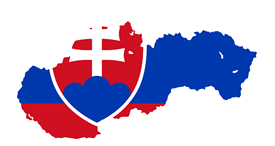
An official on Libya’s governing
council says he believes Muammar Gaddafi is hiding in the south-western
desert near the borders with Niger and Algeria, but denied allegations
that the Tuareg minority ethnic group is protecting the fugitive leader.
Moussa al-Kouni, who is a Tuareg representative on the revolution’s
leadership body, claimed on Monday that Gaddafi had sent his son Khamis
to the area to set up a radio station and make preparations for a
possible escape route two months before Tripoli fell to revolutionary
forces in late August.
Al-Kouni provided no evidence, saying he based his assertion on the
fact that the Gaddafi regime had used the area before because it has
rough terrain and porous borders that would make detection difficult. He
also pointed out that Gaddafi had cultivated close ties with the Niger
government and could even be going back and forth across the border.
“As far as I am aware, Gaddafi is in that region … on the border with
Niger,” he told reporters in Tripoli, adding that Gaddafi could get safe
passage through Niger to Mali, where he allegedly has a house in
Timbuktu. Niger has put Gaddafi’s son al-Saadi under house arrest.

There has been much speculation about Gaddafi’s whereabouts since the
erratic leader and two of his sons went underground as revolutionary
forces swept into the capital.
Libya’s new rulers have vowed Gaddafi will face justice for crimes
committed during more than four decades of brutal rule. But more than
seven weeks after Tripoli’s fall, authorities appear no closer to
capturing him and the fugitive former leader continues to try to rally
supporters with audio messages from hiding, most recently on Thursday.
Gaddafi’s supporters
The head of the National Transitional Council, Mustafa Abdul-Jalil,
told reporters Sunday the governing authority had no confirmed
information about Gaddafi’s location and he didn’t know whether the
fugitive leader was inside or outside Libya.
Some military officials have alleged Tuaregs are helping Gaddafi
survive and remain hidden in the vast southern desert. The nomadic
community, which spans the desert border of Niger, Mali, Libya, Algeria
and Chad, has long been among Gaddafi’s strongest supporters and many
fought for him during the civil war.
Al-Kouni acknowledged that some of Gaddafi’s Tuareg recruits may still
be helping him but insisted the community as a whole was not. He
expressed concern that the allegations were causing harmful divisions
between Tuaregs and other Libyans.
Revolutionary forces still battling Gaddafi loyalists have made gains
in recent days on two major fronts, his coastal hometown of Sirte and
the inland enclave of Bani Walid, but still face fierce resistance.
The transitional leadership, eager to move forward with efforts to
hold elections and establish a democracy, has said it will declare Libya
liberated after Sirte falls.
Anti-Gaddafi fighters raised their tricolour flag on Monday over
Sirte’s Ouagadougou Convention Centre, which had been used by loyalists
as a base, but fighting surged elsewhere in the fugitive leader’s
hometown. Tank, rocket and machine-gun fire echoed through the
surrounding streets.
Col Younis al-Abdally, a commander in Sirte, said his troops have
surrounded pro-Gaddafi fighters in a small area along the upscale Dollar
Street. He conceded a fierce fight still lies ahead, adding that
information indicates one of Gaddafi’s sons and a number of top
officials of the former regime are holed up in villas there.
Resistance
Artillery commander Mahmoud Mustafa said Gaddafi’s son Moatassim was
believed to be hiding in Dollar Street or one of two other areas where
fighting still raged, so revolutionary forces were trying to capture
pro-Gaddafi fighters alive.
“We believe there are some important figures, including Moatassim,
and that is the reason we have faced such strong resistance for weeks,”
he said.
A team from the International Committee of the Red Cross entered
Sirte’s Ibn Sina Hospital on Monday to evacuate wounded people left
behind after three weeks of fighting.
More than 100 patients, including several wounded children and their
families, were trapped in the hospital, Dr Abdallah Etbiga said.
In Bani Walid, the other remaining bastion of Gaddafi loyalists,
revolutionary fighters retreated from the town center after facing heavy
sniper fire and booby-traps but still held the airport and two villages
to the south, said Abdullah Kenshil, who led failed talks for the
town’s peaceful surrender.
Gaddafi forces also attacked revolutionaries at the town’s northern
gate on Monday but were repelled, he said, adding four fighters were
killed and six wounded in that battle.
Source:
AP









